Caprock Chronicles: Early Lubbock Baseball, Part Two: The saga of Sled Allen
- Oops!Something went wrong.Please try again later.
Editor’s Note: Jack Becker is the editor of Caprock Chronicles and is a Librarian Emeritus from Texas Tech University. He can be reached at jack.becker@ttu.edu. Today’s article about early Lubbock baseball is the second of a three-part series by frequent contributor Chuck Lanehart, Lubbock attorney and award-winning history writer.
“He was a ballplayer. Whatever else happened in his life, he was a ballplayer.” — Terry Allen
Fletcher Manson Allen was a fellow with big feet, which earned him the nickname “Sled.” Born in Missouri in 1886, Sled became a journeyman ballplayer who eventually landed in Lubbock, making a big mark in local baseball, wrestling and entertainment.
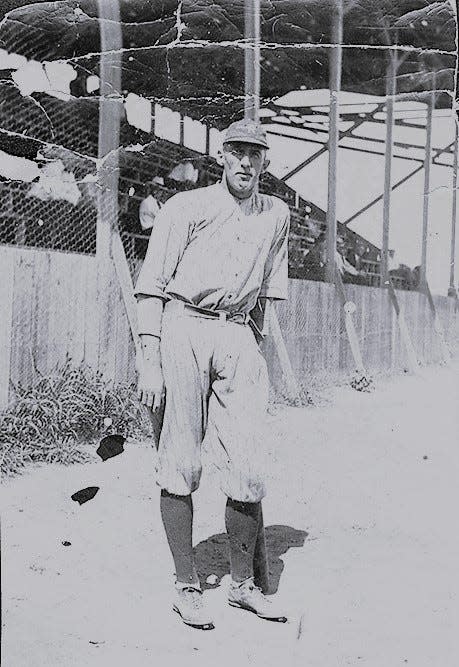
As a child, Sled saw his first game at a church social and caught baseball fever. He left Missouri, determined to make it to the big leagues.
A catcher, Sled’s first year of professional ball came in 1908, when he played for a team in Wheeling, West Virginia in the Central League. Later, he played for the Enid (Oklahoma) Railroaders. The Sporting News predicted, “Allen has a future, or some expert critics will miss a guess by several miles. That young fellow has astonished already by his work and seems to be sure to stick.”
When he finally got a shot at the majors, playing for the St. Louis Browns in the 1910 season, he batted a dismal .130, mitigated by an excellent .903 fielding percentage. He lasted three months.
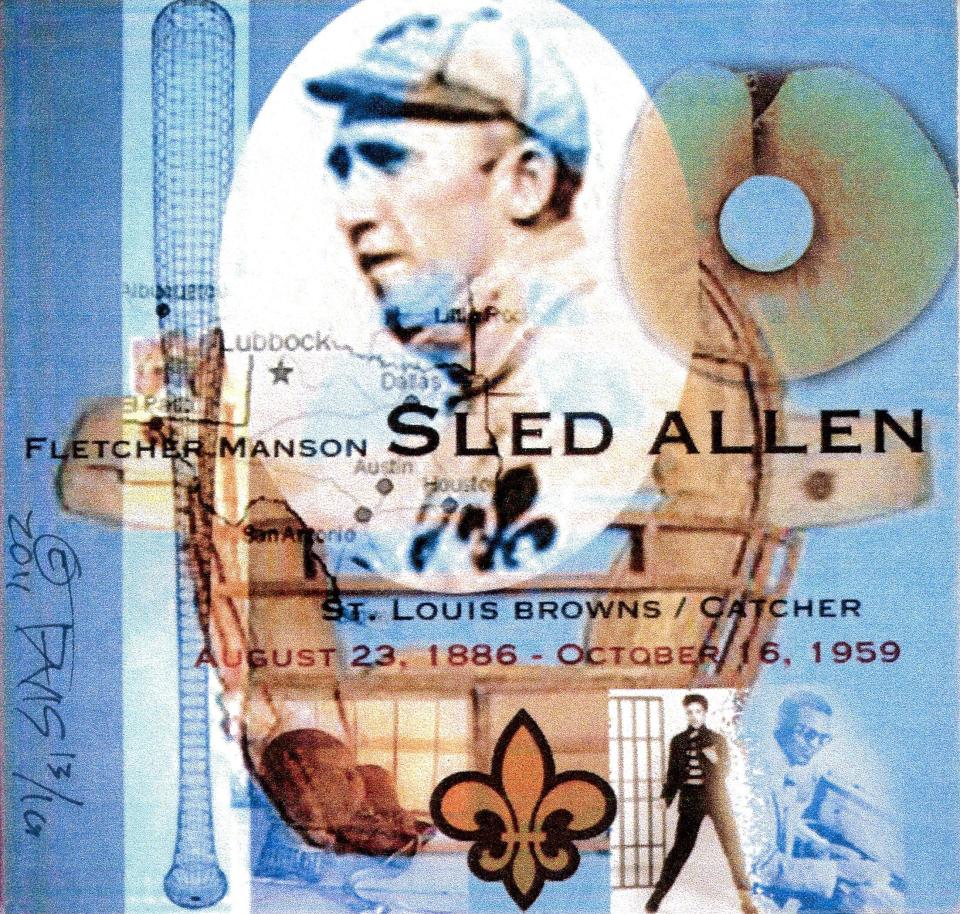
Sled’s son, famed musician and conceptual artist Terry Allen, said of his father’s batting woes, “He swore it was because of foul lines. When he learned to play, there was no such thing as foul lines. He couldn’t hit it within the confines.”
After stints with the Louisville Colonels and the Houston Buffaloes, Sled’s professional baseball career ended in 1916. He bounced around the Texas Plains, sometimes playing on semipro teams, sometimes umpiring. During the off-seasons, he was a golf professional at Amarillo Country Club.
Somehow, Sled wound up in Lubbock in 1922 as player-manager of the fledgling Lubbock Hubbers. Sled led the team to the 1923 championship of the Panhandle-Pecos Valley League, beating the Amarillo Gassers in a nine-game playoff series.
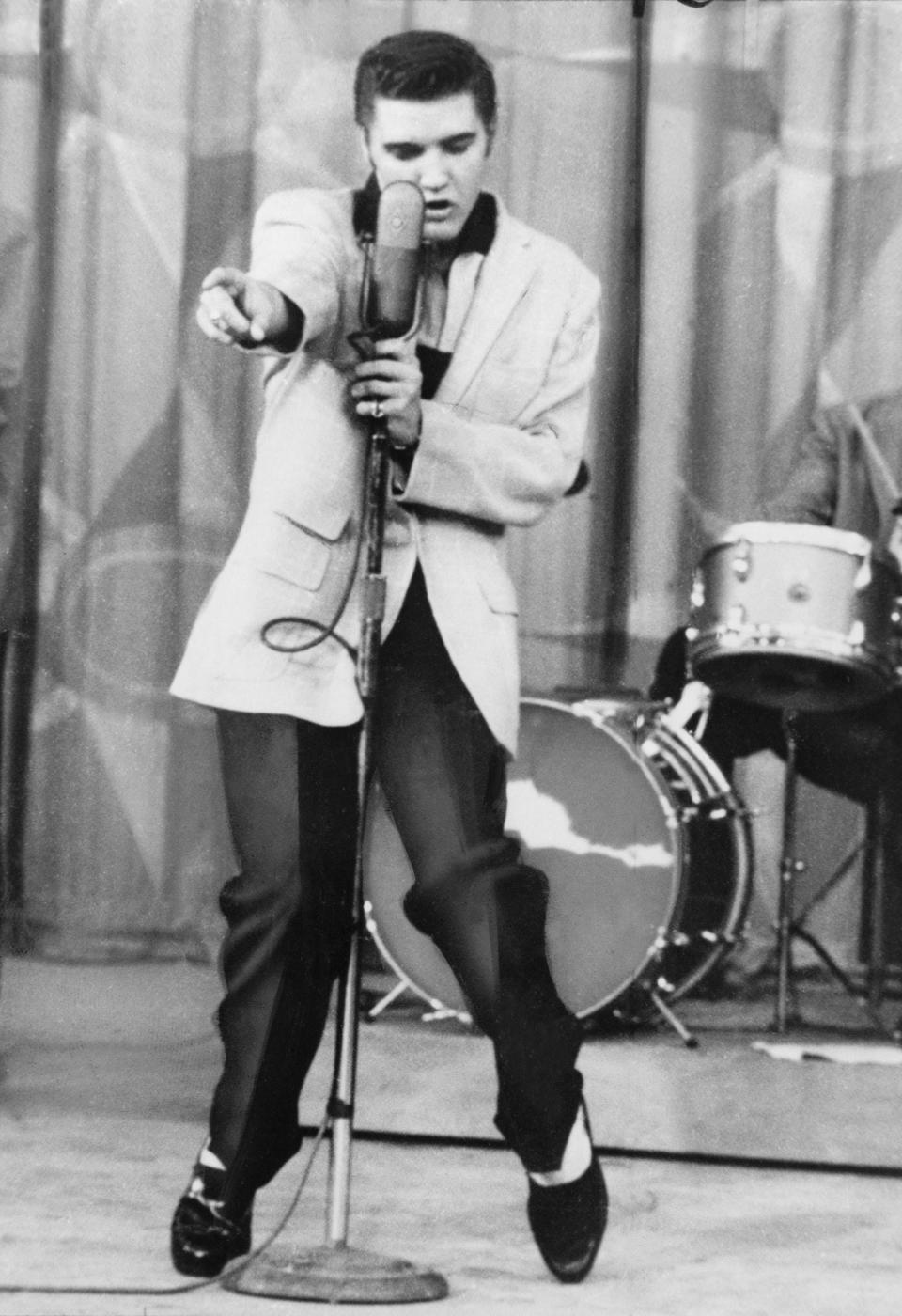
In 1925, Sled took the Hubbers to the prestigious Denver Post Tournament. He raced home from third to score the winning run, claiming the championship. The team returned to the finals of the tournament in 1926 but could not repeat.
After the Great Depression struck in 1929, Sled was forced to find jobs wherever he could. When he was not managing, and in the offseason, Sled would hop on a train and travel for opportunities to earn a dollar.
“He told me about working in a slaughterhouse in Kansas City for three days,” Terry recalled, “and then he couldn’t stand the screaming of the pigs. He never ate bacon again.”
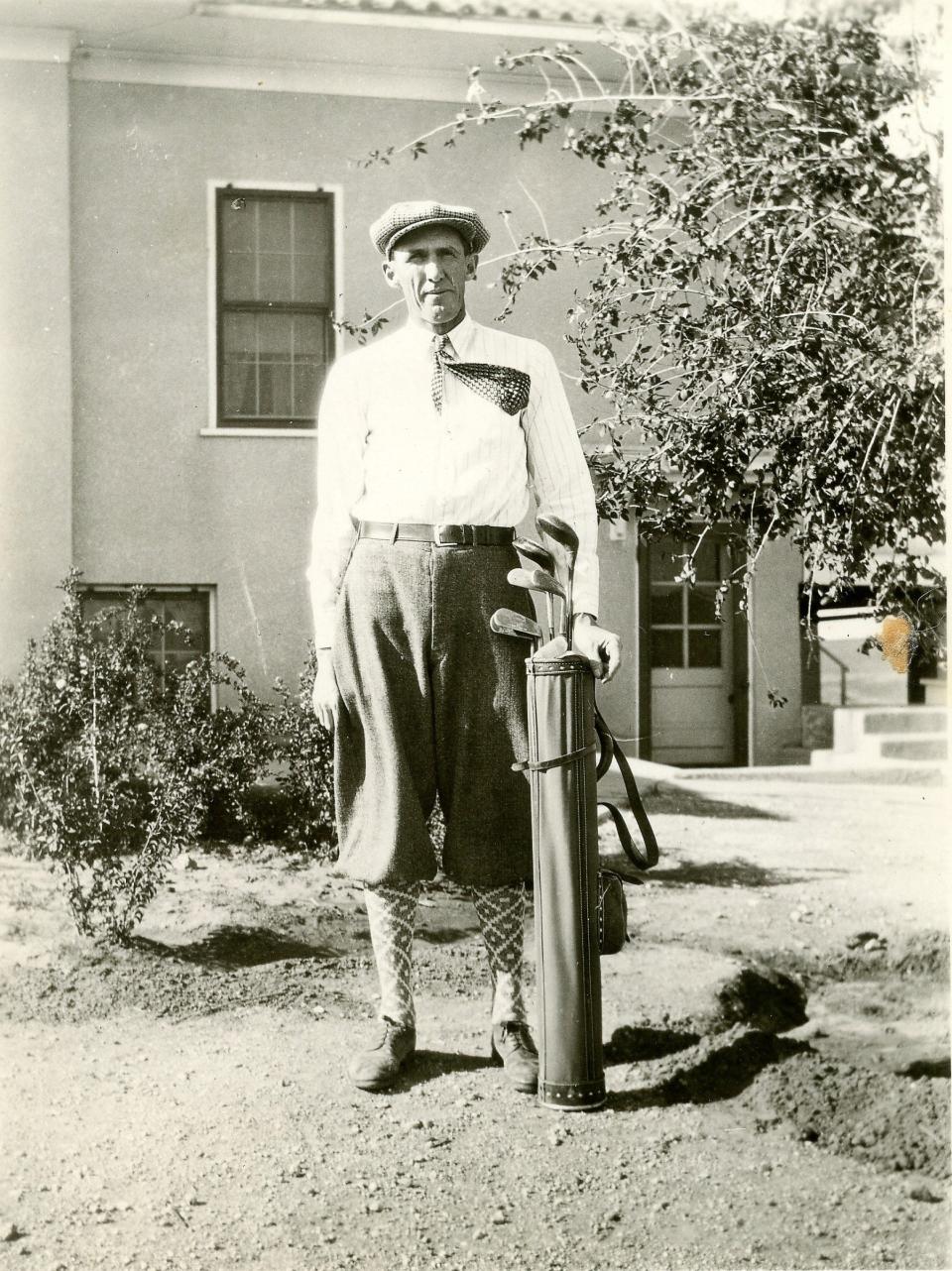
In 1931, Sled became a wrestling promoter. He took over management of the Lubbock Auditorium and brought Gorgeous George to town with other wrestling greats of the era.
During WWII, Sled worked in a Cessna airplane plant in Kansas — where son Terry was born — then returned to Lubbock, where he continued booking wrestling events. He leased a shuttered church building where he began throwing dances on weekends, leading to the genesis of Sled Allen’s Jamboree Hall.
As the Jamboree grew in popularity, its location changed several times, winding up at the new Fair Park Coliseum. The first act Sled booked for the Coliseum was a little-known swivel-hipped young Memphis “bop” singer, Elvis Presley, on Jan. 6, 1955. He also brought Hank Williams, Ernest Tubb, B.B. King, Little Richard and other acts to Lubbock.
During the era of segregation, Sled hosted the town’s first “cosmopolitan dance,” a show that brought together Whites, Blacks and Hispanics to see Ray Charles.
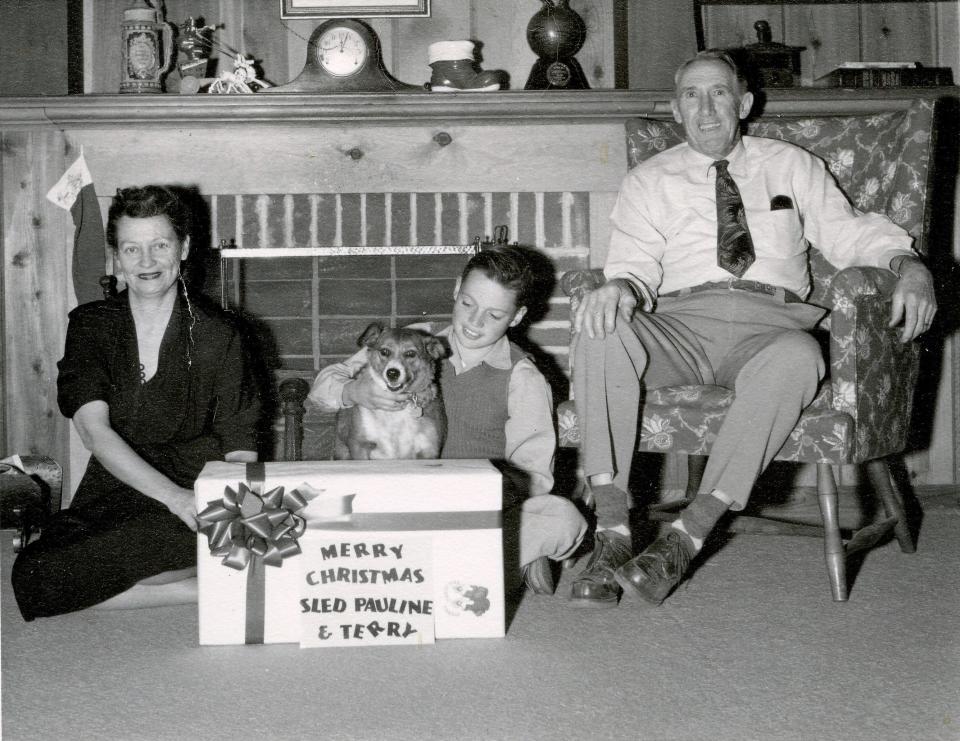
“There were three tight, really paranoid knots of people in that room, not getting near one another,” Terry recalled. “It was definitely another time.”
Terry said of his father, “He was a ballplayer. Whatever else happened in his life, he was a ballplayer. He even waited until a week after the World Series was over to go into his last coma and die.” Bone cancer claimed Sled’s life on Oct. 16, 1959. He was 73.
After his death, a fire destroyed a lifetime of Sled’s baseball memorabilia, which inspired Terry to do something with his memories. In 1999, he recorded the song, “Red Leg Boy,” a foot-stomping tribute to his father and baseball.
In 2003, Terry completed a 10-year project, “Dugout,” an award-winning multi-sensory art exhibition which debuted at the Austin Museum of Art. Through text, artwork, and a play, it helped tie together the two larger-than-life stories of Sled, his wife Pauline — Terry’s mother — as well as Terry’s own childhood. The work is not a straightforward autobiography. Terry said, “It’s not really about my folks . . . they became fictional character vehicles to carry the stories.” In 2005, “Dugout” was published in book form.

Terry observed, “People will always have interesting stories. That’s just our nature. But maybe the idea of what an interesting story is — is going to be totally different.”
The final installment of Chuck Lanehart’s three-part series on early Lubbock baseball will be published in next Sunday’s Lubbock Avalanche-Journal.
This article originally appeared on Lubbock Avalanche-Journal: Caprock Chronicles: Early Lubbock Baseball, Part Two: The saga of Sled Allen

